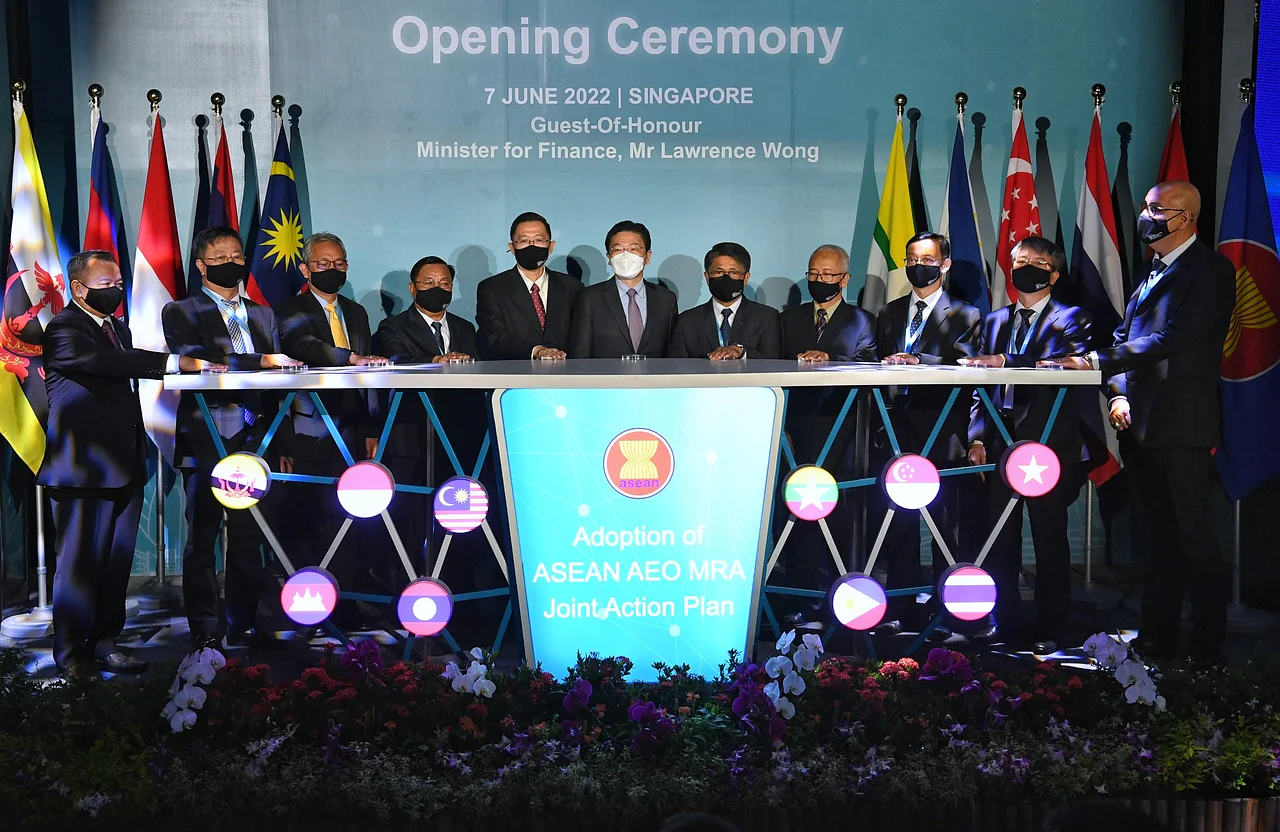June 8, 2022
SINGAPORE – By 2025, companies certified by Singapore Customs as having robust security practices will enjoy faster clearance for goods that they export to Asean countries.
The plan is for certified Singapore firms to be subject to reduced documentary and cargo inspections, under an agreement reached by Asean customs chiefs on Tuesday (June 7).
The same will apply to companies abroad that have been certified by their respective customs administration for goods that they export to Asean nations such as Singapore.
Firms under this arrangement are expected to adhere to security practices such as customer risk screening.
The development comes under a joint action plan on Mutual Recognition Arrangement (MRA) of Authorised Economic Operator programmes launched by the Singapore Customs and its Asean counterparts on Tuesday.
The MRA, which will be signed by the 10 South-east Asian states later this year, aims to enhance supply chain security and facilitate trade in the region.
Minister for Finance Lawrence Wong, who gave a speech at the ceremony at Hilton Singapore Orchard hotel, said these businesses will get to enjoy benefits such as priority treatment for cargo inspection and expedited clearance during trade disruptions.
“The benefits are substantial – studies have shown that such arrangements can improve customs clearance efficiency by 30 per cent or more.
“For businesses, it will mean higher cost savings (due to better predictability of cargo movement). For Asean countries, it will mean more efficient trade with one another,” he added.
At least three Asean countries will proceed with the scheme in the second half of this year, said Singapore Customs. It did not name them.
Outside of Asean, Singapore has signed 10 bilateral MRAs with countries including Canada, Japan and Australia.
Mr Wong noted that trade volumes in Asean have yet to recover to pre-pandemic levels, but the region is on track to become the world’s fourth-largest economy by 2030.
“Today, it is common to hear of companies using different Asean countries to manufacture components before assembling them for global export, be it for smart phones or home appliances,” he said.
“Asean countries also rely heavily on each other for crucial resources and goods such as electrical machinery, mineral fuels and vehicle parts,” he added.

Finance Minister Lawrence Wong joins the heads of delegations of Asean states in launching the Mutual Recognition Arrangement of Authorised Economic Operator programmes on June 7, 2022. ST PHOTO: CHONG JUN LIANG
Among the 10 trading partners listed as Singapore’s major partners in merchandise trade in 2021, three are from Asean – Malaysia, Indonesia and Thailand – according to data from the Department of Statistics.
Director-general of Singapore Customs Ho Chee Pong said Asean countries have formed a feasibility study group to simplify clearance for low-value shipments.
As such shipments have increased due to the rise in e-commerce, facilitating their clearance could reduce costs for both businesses and customs administrations, he noted.
“The study group has been collaborating closely with the business community to understand the challenges and identify opportunities.
“I am confident that (the study) which will be concluded by the end of this year will be a good basis from which Asean member states can chart their way forward,” said Mr Ho.
Going forward, Mr Wong identified two areas of customs collaboration that will greatly benefit Asean countries.
First, he noted that trade-related documents for goods exported outside of Asean are still in hard copy, which is inefficient and unnecessary.

Finance Minister Lawrence Wong delivering a speech at the ceremony at Hilton Singapore Orchard hotel on June 7, 2022. ST PHOTO: CHONG JUN LIANG
Mr Wong said linking up the Asean Single Window with key trading partners like the United States and China will lower trade-related costs and support the development of supply chains with these countries.
Single windows are digital platforms that allow for the electronic exchange of trade-related documents, and simplify customs clearance.
He also spoke about aligning customs processes in Asean countries to common standards that will make the region more attractive for e-commerce.
“These two areas will involve a lot of close coordination and technical study. But I am confident that we will continue to make progress, through the strong spirit of collaboration and partnership,” said Mr Wong.


